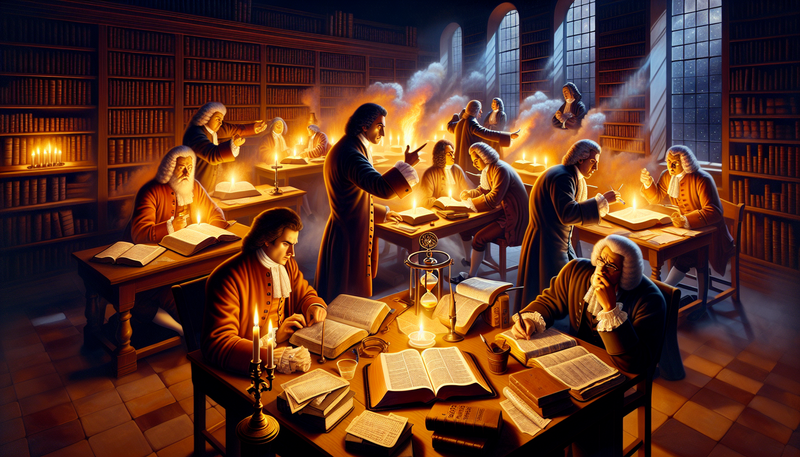The Bible, a text sacred to millions, has been subjected to intense scrutiny and analysis for centuries, and you might wonder, "Why the hell is it analyzed to such an academic depth that entires PhD theses can be based on a single biblical verse?"
The deep dive into the Bible began in the 18th and 19th centuries during the Enlightenment (see:What the Hell was... the Renaissance?), a period that championed reason and critical thinking. Scholars started to question traditional beliefs and sought to understand the Bible not just as a religious text, but as a historical document.
This era gave rise to biblical criticism, where scholars began dissecting the text using various methods. They examined authorship, context, and the historical circumstances surrounding its creation. This analytical approach is like peeling an onion—layer by layer, they sought to uncover the meanings and implications hidden within.
As universities grew and theology became an academic discipline, scholars began writing PhD theses that meticulously analyze each verse. They aim to clarify interpretations, explore theological debates, and understand the Bible's impact on ethics and society. This rigorous examination reflects the diverse perspectives within Christianity and Judaism.
The endless analysis also helps make the Bible relevant today, bridging ancient wisdom with contemporary issues. Scholars strive to reconcile traditional beliefs with modern insights, ensuring that the text speaks to new generations.
In summary, the Bible is analyzed ad infinitum because it’s not just a book; it’s a complex tapestry of history, culture, and faith. This ongoing examination reveals its richness and depth, making it a cornerstone of academic inquiry and spiritual exploration. So, whether you see it as divine inspiration or a historical document, the Bible continues to invite curiosity and debate.


